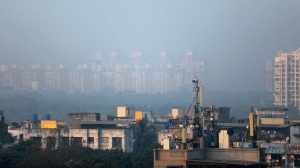Separate tracks
Lalu Prasads RJD may have been returned to Lok Sabha as a far trimmer contingent this summer,but the party has not lost its argumentative vigour. A debate on the Rail Budget...
Lalu Prasads RJD may have been returned to Lok Sabha as a far trimmer contingent this summer,but the party has not lost its argumentative vigour. A debate on the Rail Budget in Lok Sabha was taken late into Wednesday night; 131 MPs participated,but its combativeness came from RJD members. Submissions by Lalu and Raghuvansh Prasad Singh were additionally engrossing because they happen to be amongst the liveliest parliamentarians. But if there was a peculiarly sharp political edge in their attack on Railway Minister Mamata Banerjees budget,she too had drawn those lines of combat by dwelling at length on her plan to bring out a white paper on the Railways over the past five years that is,precisely the period of Lalus incumbency in the ministry. What accounts for this standoff?
Part of the competitiveness perhaps draws from the unique premium politicians from Bihar and West Bengal place on the Railways portfolio. In the early 80s,for instance,when A.B.A. Ghani Khan Chowdhury held the portfolio,Malda,his constituency,was called the headquarters of Indian Railways. Barring a short interlude when Banerjee was in charge in the NDA government,the political centre of gravity for the Railways has been in Bihar since 1996,with Ram Vilas Paswan,Nitish Kumar and Lalu holding the post. The lure of the portfolio lies in the scope for patronage it brings. The Indian Railways are the worlds largest employer and the bitter reaction from Bengal politicians when the headquarters of the East-Central Railway Zone was announced in Bihar showed the competitiveness between the states. Also,given the large volume of out-migration in these states for reasons of employment,train routes have big local demands.
Banerjee could also be drawing thick lines of separation from the Lalu ministry to Nitish Kumars evident interest for reasons of local Bengal politics. The first UPA government was,after all,supported by the Left parties. Ironically,as charges are traded between the current railway minister and her predecessor,the case is made stronger for the corporatisation of the Indian Railways.
- 01
- 02
- 03
- 04
- 05































